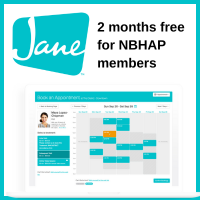Advocacy Alert: Letter to Governors Regarding the New Wave of the Opioid Epidemic
August 29, 2024
On August 27, 2024, Mothers Against Prescription Drug Abuse (MAPDA) sent the below letter to 19 governors, listed below, that reside in states that do not have access to every tool in the fentanyl overdose and opioid epidemic toolkit.
These 19 governors are: Gavin Newsom (D-CA), Jared Polis (D-CO), John Carney (D-DE), Brian Kemp (R-GA), Kim Reynolds (R-IA), Maura Healey (D-MA), Wes Moore (D-MD), Gretchen Whitmer (D-MI), Mike Parson (R-MO), Greg Gianforte (R-MT), Jim Pillen (R-NE), Kathy Hochul (D-NY), Kevin Stitt (R-OK), Tina Kotek (D-OR), Josh Shapiro (D-PA), Kristi Noem (R-SD), Phil Scott (R-VT), Jay Inslee (D-WA), and Tony Evers (D-WI).
NBHAP is one of several organizations to support this letter.
We write to you as concerned mothers, fathers, siblings, aunts, uncles, grandparents, family and community members regarding the synthetic opioid overdose crisis sweeping the country. Every day, more than 200 people are dying due to synthetic opioids like fentanyl in the United States. Opioid overdoses know no bounds and often impact the most vulnerable. The increased lethality of synthetic opioids exacerbates these dangers, and the cost of lives is stark.
According to the Drug Enforcement Agency, drug poisonings, including from hidden substances like synthetic fentanyl, are the leading killer of Americans between the ages of 18 and 45. Often hidden in counterfeit prescription pharmaceuticals like Adderall, Xanax, and Oxycontin, it's so lethal that just two milligrams, the size of a pencil tip, can kill. In fact, Fentanyl is 50 times stronger than heroin and 100 times stronger than morphine.
We need state leaders to do more to protect Americans from this new wave of the opioid epidemic and call on all governors to:
- Improve Access to Innovation: Open state standing orders to ensure access to all overdose reversal agents approved by the U.S. Food and Drug Administration (FDA). Even for FDA-approved products, each state must create its own policy or standing order to enable access to all reversal agents. With the rise in synthetic opioids, states need access to all opioid antagonists to ensure our communities are well equipped to respond to fentanyl poisonings and overdoses.
- Deploy Supportive Funding: Publish State Opioid Response (SOR) grant distribution action plans. As funding from opioid settlements is dispersed, clear plans to support communities in recovery are needed to ensure transparency and further the social health of our citizens with initiatives like job training, addiction treatment, early intervention, and housing and recovery support.
- Collect Actionable Data: Prioritize data modernization initiatives that improve overdose surveillance data. Meaningful solutions require data that enable public health officials and policymakers to accurately understand the scope of the evolving epidemic so that they can implement the most effective policy solutions. States must prioritize quality and timely surveillance data collection to ensure data-driven to inform effective treatment and prevention approaches.
- Support First Responders: Offer regular trainings and update protocols for law enforcement, firefighters, emergency medical technicians and other first responders to ensure the frontlines have the tools and education needed to effectively treat overdoses and keep our communities safe.
- Engage in Awareness & Education Efforts: Implement or update overdose education and awareness communication campaign(s) to include synthetic opioid relevant messages. As the opioid epidemic evolves, our language, education and resources need to reflect the populations at-risk. Terminology like 'poisonings' and a focus on counterfeit prescription pharmaceuticals, for example, can help modernize education and prevention efforts.
Without the most effective resources, more Americans will die unnecessarily from fentanyl. We need to equip communities to respond and call on our governors and all elected officials to act now to ensure every tool in the fentanyl overdose and opioid epidemic toolkit is put to use. Together, we can make a difference in the lives of our children, neighbors, friends and co-workers.
We encourage you to contact your representatives and share your approval of this letter. MAPDA will post the letter and a statement to their website this week.
Questions? Concerns?
As always, we want your input. What topics would you like to see us cover in future Advocacy Alerts? If you are a representative of a state association and have something for us to consider for an Advocacy Alert, let us know!
Did you know NBHAP members get regular access to our advocate in Washington, DC? If you have any questions about NBHAP's advocacy efforts, please contact us.

A national membership association that provides education and advocacy for those in the behavioral health and addiction treatment industries.
We are the leading and unifying voice of addiction-focused treatment programs.



